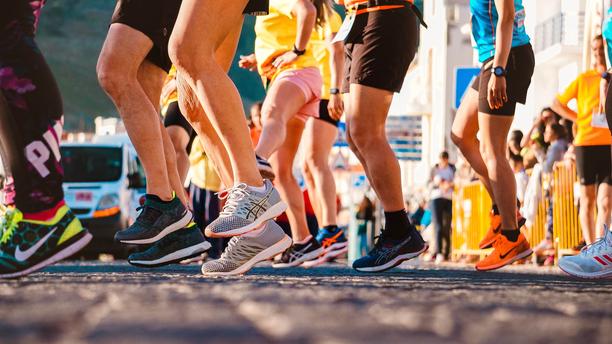|
Keen to provide a lasting legacy of the 2012 London Olympic Games, the UK Government funded a new Institute of Sport, Exercise and Health based at University College London
The Institute is expected to increase exercise in the community and develop strategies to prevent diseases related to inactivity.
Dr. Mike Loosemore, a leading sports physician based at the new Institute, advocates that activity rather than exercise is a crucial, but an underused therapy to prevent, manage and treat many medical conditions.
According the Dr. Loosemore, "We need to increase our daily activity. We spend most of our working day sitting and sedentary behaviour is more damaging to health than smoking."
Dr. Loosemore spends much of his time with elite athletes, but believes that an important legacy of the London Olympics is to encourage everyone to increase their activity no matter how small.
"People need to increase their daily activity" he says, "because bouts of intensive exercise do not compensate for sitting for hours. We should focus on increasing the small movements we do every day. Anyone can increase their activity. It doesn't cost anything, it can be done anywhere at any time and it is sure to benefit your health and wellbeing. I'm surprised governments haven't latched onto this." Is Dr. Loosemore right?
Health systems treat illnesses rather than change peoples' behaviour
Our health and longevity are influenced by our genetics, environment and behaviour. We have little control over our genetics and environmental risks are reduced through vaccinations.
The only factor we control is our behaviour. Prompted by escalating healthcare costs, Western governments have successfully changed peoples' behaviour towards smoking. Healthcare systems however, are not focused on changing peoples' behaviour before they become ill, but on diagnosing and treating peoples' illnesses.
Exercise is Medicine is a movement that does emphasise the importance of behaviour. Launched in 2007 by the American College of Sports Medicine and the American Medical Association, it is dedicated to changing peoples’ behaviour towards exercise, which it suggests is crucial to the prevention, management and treatment of type 2 diabetes, heart disease and cancer.
Couch potato syndrome kills
A 2011 survey conducted by Tata Steel suggested that British children are likely to become a generation of couch potatoes who cannot swim, run or cycle.
The study of 1,500 children aged between six and 15 revealed that half the children surveyed lived sedentary lives and spent their time surfing the internet, chatting on social networks and playing video games.
Couch potato syndrome is a significant global challenge and it can kill. Emerging research evidence suggests that sedentary behaviour effects human metabolism, physical function and health outcomes.
When you sit, the electrical activity in your muscles become constant, your body uses little energy and slows down.
The take home message is simple: Sedentary lifestyles lead to weight gain, higher blood sugar and blood pressure levels, which increase your risk of heart disease, diabetes, obesity and cancer compared with those who sit less.
Nothing compensates for long periods of inactivity
A challenge for traditional activity and obesity research is that it relies on self-reporting and people significantly under estimate how long each day they sit.
In 1999 researches from the US Mayo Clinic, challenged long-held beliefs about human health and obesity. Drs. James Levine and Michael Jensen addressed the question, why do some people who consume the same amount of food as others gain more weight?
After assessing how much food each of their research subjects needed to maintain their current weight, they banned exercise and gave all their subjects an extra 1,000 calories per day. This resulted in some gaining weight while others gained little to no weight.
The reasons for the difference were not apparent until six years later when the researches employed motion-tracking underwear.
"The people who didn't gain weight were unconsciously moving around more," Dr. Jensen says. "Their bodies simply responded naturally by making more small movements than they had before the overfeeding began, such as taking the stairs, helping with chores, standing rather than sitting and simply fidgeting."
On average, the subjects who gained weight sat two hours more each day than those who had not. Drs Levine and Jenson's research goes against conventional wisdom, which suggests that if you control your diet and exercise regularly, you can compensate for a sedentary lifestyle. This, they argue, is untrue and, "is like suggesting that the effects of smoking can be compensated by jogging".
|


Comments